Rating the city rankings
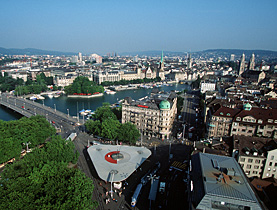
In a globalised world, the ranking of cities has become a mini-industry and an important component for the economic viability of Swiss centres like Zurich and Geneva.
The results from numerous surveys help companies choose an ideal location for their headquarters or to open a new office abroad even if the credibility of the rankings is rarely questioned.
“Zurich – Switzerland’s Economic Metropolis” is the name of a brochure published by the financial centre. It lists the rankings of no fewer than six international surveys that place the city first or second.
Whether it is infrastructure, quality of life or purchasing power, Zurich is hard to beat, the surveys say.
Among the firms convinced that Zurich is the place to be is Google, which in 2004 chose the Swiss city to open the search engine’s biggest engineering hub outside the United States.
“We have engineers from over 40 nationalities, which is testament to the fact that Zurich is a great place to attract people to. We are able to leverage Google as a way of introducing people to one of the greatest cities in the world,” Randy Knaflic, a recruiter in Google’s Zurich office told swissinfo.ch during the unveiling of Google’s new custom-made premises.
The local tax regime is paramount when companies draw up shortlists, but according to Benno Seiler, head of economic development in Zurich, the “soft factors” such as quality of living and where the CEO will find the “right environment for his family” are often decisive.
In this case, Zurich trumpets its seven successive years at the top of the Quality of Living survey by the Mercer consulting group. It was knocked into second position this year by Vienna.
Indecisive staff
Robert Baldwin of the firm Network Relocation, which helps international companies move staff to Switzerland, told swissinfo.ch that it is the quality of living that will in many cases convince indecisive staff to come to Switzerland, whether its Zurich, Geneva or the capital, Bern.
The surveys, Baldwin says, are recognised benchmarks that help companies sell a city to highly qualified workers who may turn up their noses at a job offer if the conditions are not right.
The relocation expert believes firms choosing a city based only on an advantageous tax rate face costs such as those entailed to replace dissatisfied staff. This is often more expensive than the money saved on taxes.
And there is an ever-growing appetite for surveys. Vivian Macleod of Mercer’s Geneva office says 1,600 companies pay membership fees to have access to all of the consultancy’s data, and another 18,000 place orders for various surveys.
Sochi and Pyongyang
Mercer publishes rankings for 240 cities, and Macleod says it is expanding the list to include two unlikely places due to high demand: Sochi, Russia – site of the 2014 Winter Olympics – and the North Korean capital, Pyongyang.
While interest in these surveys may be great, Jeff Huang, a professor at the Federal Institute of Technology in Lausanne, questions their credibility.
“How do you rely on – in some cases – remote experts to make sense of what is the best city or defining what the best means,” says Huang, who co-founded cityrank.ch, a new online tool that enables companies to compile their own scores.
“What is striking is that people don’t actually look into how the ranking was done or how trustworthy the experts are.”
Cityrank.ch allows firms to select from 11 indicators, including quality of living (calculated by Mercer), price and earnings (compiled by UBS) and commerce (done by MasterCard), and to weigh them according to importance.
Wisdom of many
Huang believes that after a year or two, enough companies will have submitted their own results to achieve aggregated scores. “Essentially this means we will have tapped into the collective wisdom of many,” he says. “Mercer has a panel of experts. In our case, everyone would be an expert.”
Seiler counters that the panel of experts criticised by Huang must be doing something right.
“The surveys are trustworthy. If you look at the different rankings you’ll see, for example, we are number two in Mercer’s this year, number one in Monocle, and among the top ten worldwide in The Economist,” he argues.
“They all have different criteria, so I think there is some validity in the results if we are always close to the top.”
Dale Bechtel, swissinfo.ch
Mercer Quality of Living 2009
1. Vienna
2. Zurich
3. Geneva
4. Auckland
5. Vancouver
MasterCard Worldwide Centers of Commerce
1. London
2. New York
3. Tokyo
4. Singapore
5. Chicago
15. Zurich
UBS Price and Earnings
1. Copenhagen
2. Zurich
3. Berlin
4. Geneva
5. Frankfurt
The Economist Cost of Living (most expensive)
1. Tokyo
2. Osaka Kobe
3. Paris
4. Copenhagen
5. Oslo
6. Zurich
KPMG Corporate Tax Rates
1. Dublin
2. Zurich
3. Vienna
4. Amsterdam
5. Stockholm

In compliance with the JTI standards
More: SWI swissinfo.ch certified by the Journalism Trust Initiative

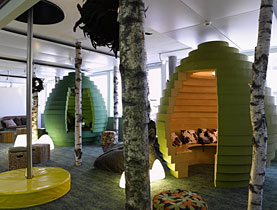
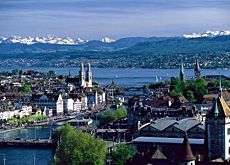

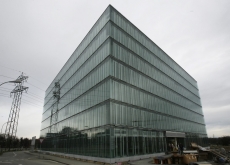
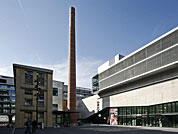
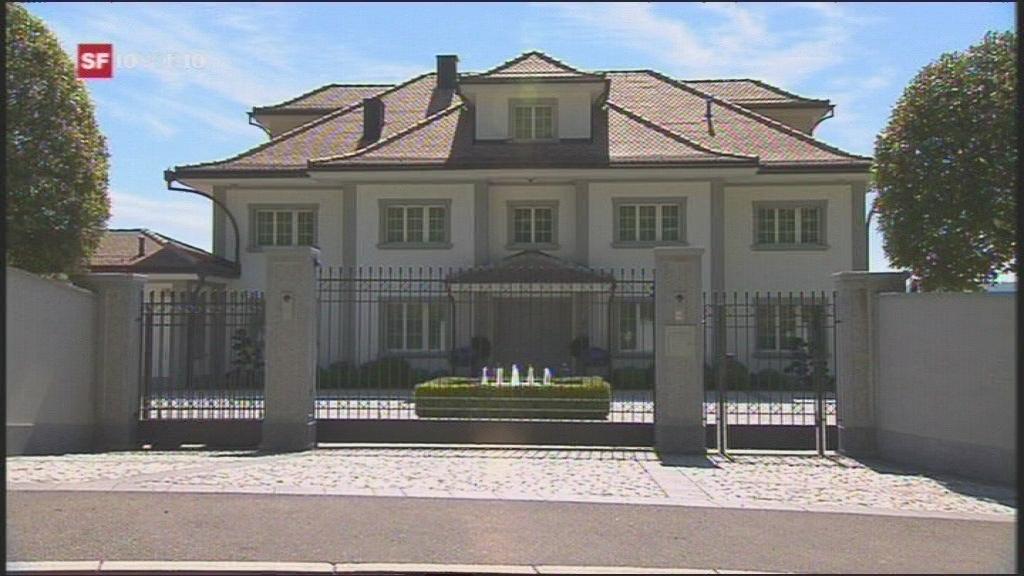
You can find an overview of ongoing debates with our journalists here. Please join us!
If you want to start a conversation about a topic raised in this article or want to report factual errors, email us at english@swissinfo.ch.